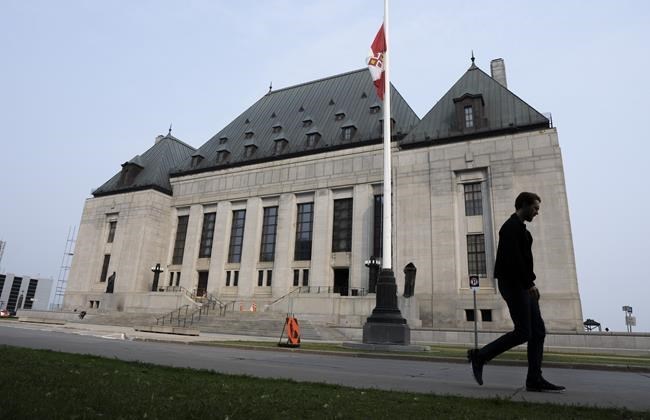OTTAWA — In order to protect the fairness of the justice system, journalists cannot broadcast or publish portions of a criminal trial that take place before a jury is constituted, the Supreme Court of Canada ruled Friday.
In a 7-0 decision, Canada's highest court upheld lower court decisions that said those trial details can be made public only after jurors begin deliberating or are dismissed.
"Publication of information that comes out at pretrial conferences may very well be prejudicial to the fair trial interests of the accused," Chief Justice Richard Wagner wrote on behalf of the unanimous seven-judge panel.
At issue were two cases in which judges imposed publication bans on proceedings that took place before juries were impanelled, leading media companies to appeal those bans directly to the Supreme Court.
One case was heard in Quebec and involved Frédérick Silva, a hit man turned police informant who was charged with four counts of murder and one count of attempted murder. The other involved Aydin Coban, a Dutch man charged in British Columbia with several offences relating to child pornography, extortion, child luring and harassment against Amanda Todd, a teenager who died by suicide in 2012.
The Criminal Code prohibits reporting on court proceedings that take place while a jury is outside the courtroom until jurors are dismissed or start deliberations. Friday's ruling affirms that the automatic publication ban must also apply to proceedings that take place before jurors are selected — proceedings that can sometimes take months.
In the case of Silva, a lower court judge dismissed two motions regarding the way police located and arrested the killer. La Presse applied to the court to lift the publication ban on those motions because a jury had not yet been constituted.
For Coban, the high-profile case moved through the courts for 15 months before the jury was selected, and included a constitutional challenge. Media companies including CBC, the Globe and Mail and CTV News applied to the high court to affirm that publication bans should not apply to those pre-jury proceedings.
Wagner said that while media play a crucial role in helping the public understand the justice system, publication bans protect the right of the accused to a fair trial. Publication bans, he added, are intended to enhance the fairness of trials by protecting two "interconnected interests."
"First, there is the fundamental interest of the accused in being tried by jurors who are not exposed to, and biased by, the rulings rendered on matters dealt with in their absence.
"Second, trial fairness … is also concerned with the interest of both the accused and society in the efficiency of our system of trial by jury."
Both interests are best served, he said, when a trial is conducted only on information available to the jury. Allowing journalists to broadcast or publish portions of criminal trials heard before a jury is constituted could bias jurors, Wagner said.
He concludes that publication bans on pre-jury proceedings are "to shield the jury from information about any portion of the trial from which it was absent, so that its verdict is based only on the evidence found admissible in court."
In both cases under consideration, the trials have concluded and the publication bans are no longer in force.
This report by The Canadian Press was first published Oct. 6, 2023.
— By Pierre Saint-Arnaud
The Canadian Press

